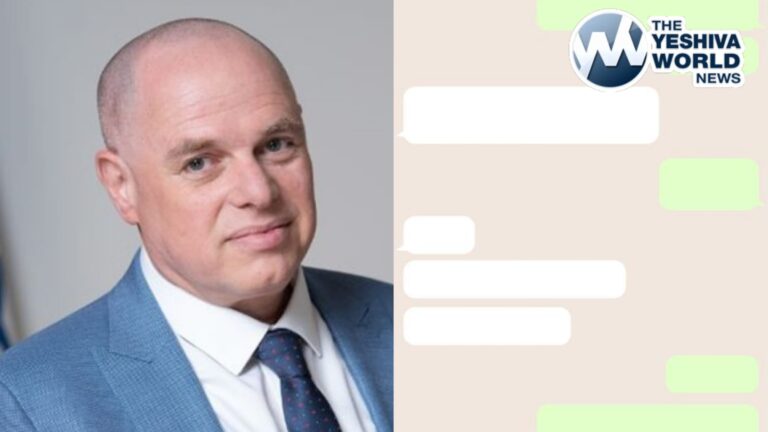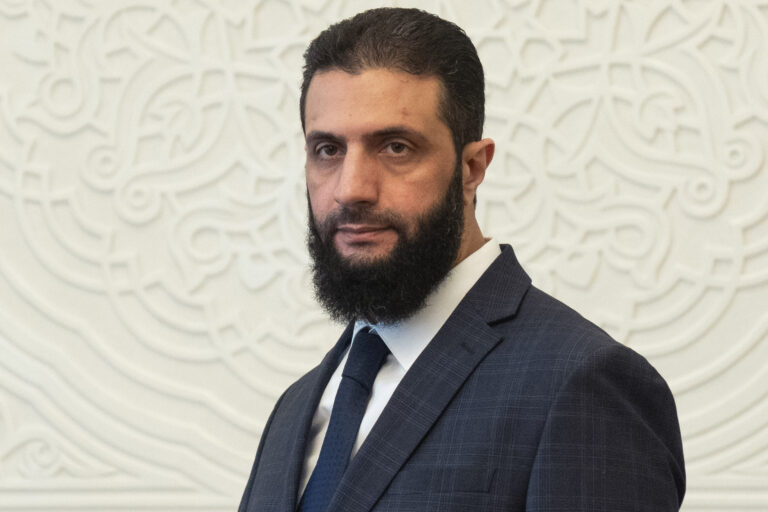Before Simchas Torah, a Jewish magazine ran a piece urging parents to ease up on their teenage bochurim and let them enjoy a few drinks on the Yom Tov. This kind of “don’t make a big deal” message might seem harmless on the surface. After all, I was once a bochur myself and recall having a small l’chaim to enhance the joy of the day. A little moderation in celebration, after all, is one thing.
But what I witnessed this past Simchas Torah was nothing short of alarming. In the place I attended, there were so many bochurim intoxicated to the point of total dysfunction that extra security was required to help manage the situation. I was both disturbed and saddened to see a respected rosh yeshiva feel compelled to publicly reprimand a bochur, who was so drunk and disruptive during Krias Hatorah that no amount of polite correction could get him to quiet down. This isn’t about one or two kids being irresponsible—it’s about a culture that has grown dangerously comfortable with overindulgence, with very real, long-term consequences.
As an addiction counselor, I know firsthand the toll that substance abuse takes on families. I’ve seen families torn apart, lives upended, and futures destroyed—all stemming from one underlying issue that often goes unaddressed: unchecked alcohol consumption. This problem isn’t isolated to Simchas Torah or Purim, though these Yomim Tovim can often bring it to a head. The tendency to turn a blind eye, to normalize excessive drinking under the guise of celebration, has unfortunately become embedded in much of the yeshiva-minded community.
The real issue here isn’t about the handful of bochurim who took things too far on Simchas Torah. It’s about the pervasive, unspoken acceptance of drinking and making l’chayim’s left and right as a core part of our culture, leading to a growing number of community members who are developing dangerous habits. These habits, if left unchecked, can easily spiral into full-blown addiction. And while it’s easy to shrug this off as a private struggle or an individual failing, we must recognize it for what it truly is: a collective blind spot that’s eroding the foundation of our community.
Why are we willing to take such risks with our children’s futures? For every young man who can “handle” a drink, there’s another who finds himself unable to stop. Addiction doesn’t discriminate, and young people are especially susceptible. By normalizing excessive drinking, we are setting them on a path that can lead to severe consequences later in life.
It’s time we ask ourselves some tough questions: Why are we allowing, and even encouraging, drinking alcohol to become the norm? Why are we turning a blind eye to the damage this habit can cause in our homes, our communities, and our futures?
We deserve better. Let’s address this issue openly, without shame or denial. Let’s set boundaries that ensure we can be joyous without being destructive. The stakes are simply too high to do otherwise.
Signed,
An alarmed therapist
The views reflected in this letter do not necessarily represent those of YWN. Have an opinion you would like to share? Send it to us for review.












25 Responses
It is a Halacha to drink wine on Yom Tov. Many parents prefer that their sons drink under their supervision rather than away from home. Yes, there is a problem with drinking too much and parents need to be vigilant and responsible for their sons. Has it become a custom to drink on Simchas Torah like we do on Purim?
As is often the case, we get stuck on symptoms.
Do people drink too much? Maybe.
Does tightening the screws help?
I wonder if we would or
(continued)
I wonder if we could focus on increasing the real simcha we experience in mitzvos and things as basic as focusing on really connecting to davening.
Rather than checking off minyan, coming late, leaving early, skipping to keep up, maybe we can find a way to invest more as a community in our experience of davening and find some real sippuk, menuchas hanefesh, simchas hachaim etc etc that come along with it.
I’m sure many will claim this is just my own chisaron and personal experience, but I’d be curious if others feel the same… I can’t help but feel all the crisises and complaints we so often hear about (over indulgence at Kiddush or simchos, Internet problems…) will dissipate without resorting to more force and tightening…
We shouldn’t speak about these things, oy. We need to speak about the real issues and sheitels.
Thank you for bringing attention to this very important issue.
As more and more kosher alcoholic beverages are hitting the kosher market the allure of alcohol is becoming stronger and stronger for both young and old within our Jewish communities. Besides educating people on the dangers of addiction we need to also educate people on the health risks associated with alcoholic consumption and especially the health dangers (cancer, high blood pressure, heart disease, etc.) associated with excessive consumption that a lot of people are simply not aware of. Just as different organizations have used print media or other media to publicize and warn us of various dangers regarding other issues we also need to start publicizing and warning our Jewish communities of the different risks and dangers associated with alcoholic consumption.
Underage drinking is definitely prevalent and problematic on Purim and Simchas Torah.
But seriously: you’re an “addiction counselor”? You probably diagnose 10 people as “addicts” before noon everyday. It’s like breathing for you people. Just because kids want to let loose twice a year, it doesn’t mean they’re addicts. It means they’re young…and dumb.
Nobody is UNABLE to stop. Come on. Maybe start using the correct terminology such as alcohol abuse/dependence, rather than anachronisms like addiction/addict. Most people who abuse substances stop on their own; ol’ Billy Wilson was a liar and a fraud, it turns out.
People in the community drink too much, kiddish clubs exist and hurt families, sure. But the simchas Torah kids will be alright, it’s not that serious.
Cool down and take a drink or two until you see 👀 three elves. Maybe you will understand me then. If not purchase new spectacles then you will see my way.
My son once drank so much wine on Purim that he collapse in a mud puddle. We brought him home, cleaned him up and let him vomit into a container.
He was sick for 2 days, and for years did not drink alcohol and now many years later, does NOT drink much if any.
So what exactly is the therapist calling for? This is just one in many many ills that reside within the community. It is clear what the reason is for this ongoing drinking issue. Nobody takes it seriously. The Jewish community complains and just moves on. So many issues requiring major repair come with a soft bark.
You seriously and adamantly want this drinking problem to disappear? I don’t think you want to hear what my suggestion is..
I was shocked on simchas torah 13 year olds getting drunk
@bigtzaddik69 I think you need reading comprehension lessons. The writer specifically said he wasn’t worried about the drinking on Simchas Torah, but rather what it is indicative of.
As an aside, I remember seeing Twerski, the biggest Stepper in the frum world, saying how if a child has ‘one drink’ then they will become an “addict”.
For some people, their first drink leads them down a path of alcohol misuse and overindulgence, sure. Most people don’t end up like that. Of the ones that do, most pull themselves out of it at some pint-er, point.
It is laudable for the author here to want to reduce problem drinking in the community. To characterize a day of (admittedly, stupidly) getting drunk as the first step towards a lifestyle of alcohol misuse is untrue and smacks of fear-mongering.
Totally agree with the writer. My local shuls have all become more like local bars… my 14 year son came home simchat Torah describing to me in depth how there was an entire table with “hundreds of bottles of wine”. When I comment to my older teenage son he tries to explain to me how the shul is just trying to attract the young men and draw them to shul. With all you can drink alcohol??? And beef jerky??
What happened to going to shul to Daven? Now we have to entice people with hard liquor and expensive meat boards?
I thought it was a teen problem but then my neighbors were chatting and at least three told me their husbands drink excessively on Shabbat, one ending up passed out and missing the meal. My husband said when the rabbi of his shul banned hard drinks the men (who were buying it themselves) got really annoyed and tried to argue.
In my humble opinion the drinking is a symptom. The men are drinking to numb themselves from a life they can’t deal with . Boys are under too much pressure. The school.shedule of a young chasidish boy does not make sense to be able to keep up with . 11 year olds have to be at shacharis at 730. As a small example…..
This has been an issue for decades and too often the solution has been to hire bouncers to deal with the bochorim who did not know how to moderate their drinking. We need to lead by example and show moderation and good judgement. I used to go to the Yeshiva on Purim (as a uniformed volunteer policeman) just to help the police deal with the situation. Much better for a parent to get involved and then speak to another parent about what happened than to force the police to handle such situations.
1] Halakha, the real Halakha not made up ones, requires a bit of wine at Kiddush of Shabbat & Yamim Tovim, 4 glasses of wine minimum “revi-it”, and if that is difficult for a person to hold him/her-self level it can be watered down a bit, and enough wine to get a buzz or floating on Purim. There is NO halakha to get uncontrollably drunk. There is No halakha to drink alcoholic drinks other than wine. There is no halakha to drink on Simhhat Torah (other than the kiddush).
2] There is a major problem with certain yeshivoth that provide vodka etc., and urge the bachurim to get drunk! Many of these boys come from good families who limited drinking to halakha as above, and then wind up becoming drunkards!
Drinking too much alcohol is strongly condemned (many times) by:
Tanach & Tanach commentaries, Talmud & Talmud commentaries,
Midrashim, Rishonim, Halachah books, Mussar books and Chasidic Rebbes.
Becoming drunk causes fatal car accidents and Chillul HaShem.
@eldermedic – a reviis is not 4 glasses of wine.
A much bigger issue is the tremoendous amount of candy garbage the shuls give out to kids.
Give nuts and fruits.
Not candy!
Who gave you a right to give my 4 year old candy?????????????
Poisin!!!!!!!!
The men drink too much to numb the pain of living the out of control “frum” lifestyle of excess and worship of money. There is no real spirituality in our community (kumzits, and “carlebach” davenings are NOT real spirituality) We are living in a “celebrity” culture and a materialism that seeps it’s way into every aspect of our lives. It’s a neis that we ALL aren’t drug/alcohol addicts.
I truly feel for many of you. This year Simchas Torah in EY was so powerful. Teens went all over the country to lead dancing through the streets. We had father’s and sons who lost their loved ones leading hakafos. Jumping for joy, some while simultaneously crying. It was emotionally drenching. Powerful. Not a drop of liquor in sight.
I beg of you, come experience the power of Am Yisrael in Eretz Yisrael. Experience Hashannah Rabbah with thousands of other mispallelim at the sight of the Nova festival. Turn on the news and see how the kibbuzim are dancing with Torahs, singing Tihei Hashaah Hazot. Come see how the frum are running to the secular communities and successfully hosting massive hakafot shniyot. It is life changing.
It’s such a world of difference, it’s hard to believe I ever experienced Yom Tov any other way.
Respond to elder medic. Drinking on simchas torah is not a new thing that started with teenagers in america because theres a reason why on simchas torah we do birchas kohanim by shacharis and not mussaf
One thing this community is good at is writing about its problems. We all know what they are but letters unfortunately don’t change anything. Most of us will read it and say yeah it’s gotten out of hand, and then we go back to our desk. Real change can only be enacted through serious leadership of either the rabbis of the congregations or the ones who run yeshivos. Unfortunately none of that could be found on YeshivaWorld. Good luck to all.
Why did you post as anonymous? It’s because you are afraid of the social stigma of addressing this issue. So is everyone else. Quit preaching
Yes this is an issue but not as much as people giving out candy to kids in shul.
Candy is basically poison if we are being real with ourselves.